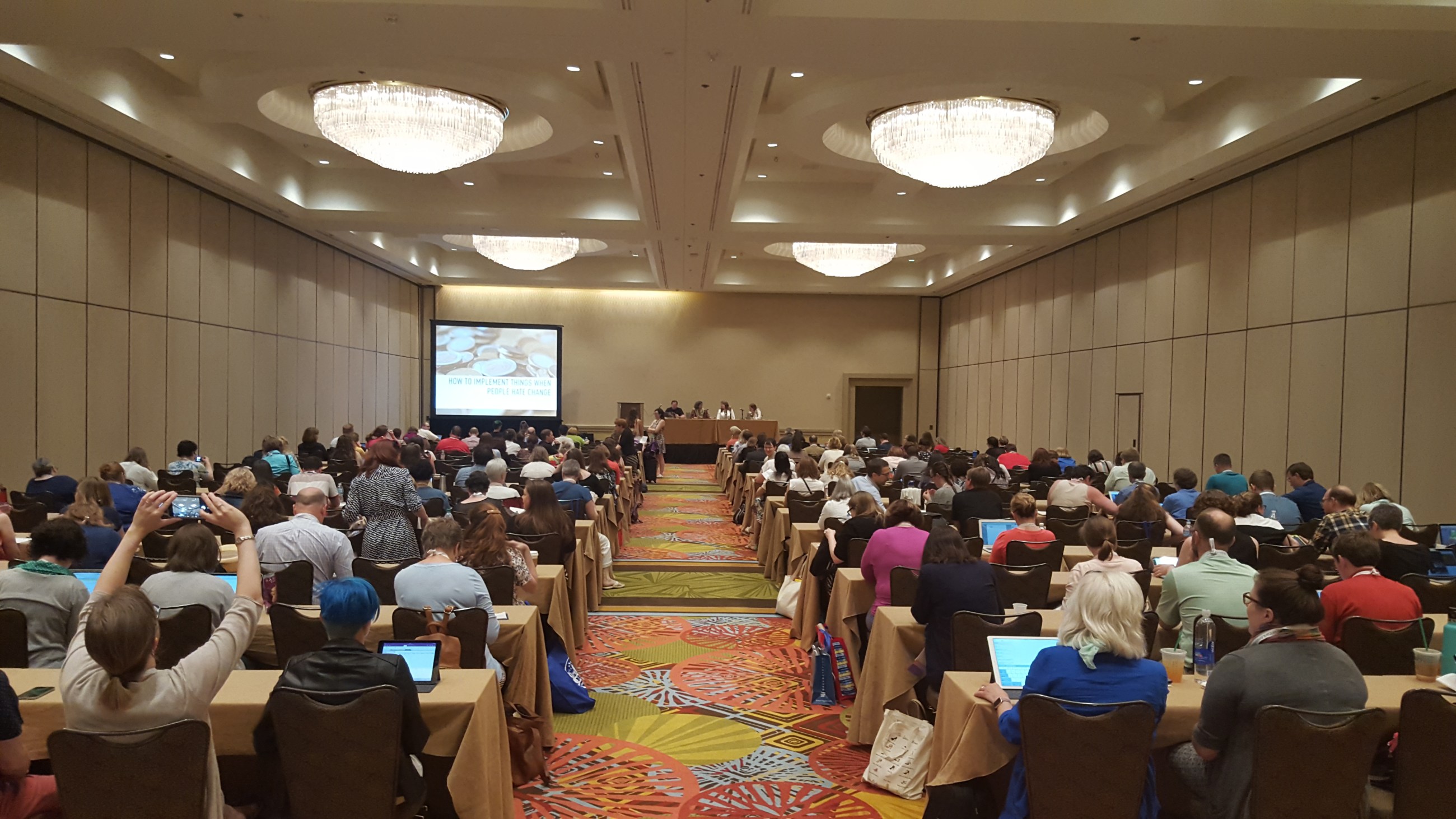
Three ways to think differently about libraries
A panel at the American Libraries Association summer 2016 conference in Orlando. Photo by Rosemary D’Amour.
I wasn’t sure what to expect when I began my internship at Knight Foundation in June. I intern in the President’s Office, where I work across Knight’s program areas and contribute to projects that interest me most. On Day Three, after a few days of exploration, I expressed an interest in libraries. On Day Four, I was on a flight headed to the Knight News Challenge on Libraries announcement and grantee gathering in Orlando.
When I arrived, I was surrounded by five cohorts of News Challenge winners and additional Knight grantees, who have innovative projects on elections, data, open internet and libraries. At the conference, I witnessed the power of collaboration: All of the News Challenge winners used their diverse knowledge and skills to build relationships and help develop each other’s ideas. Quite frankly, I was overwhelmed. Over four days, I was introduced to hundreds of new people, phrases and ways of thinking—a lot for my first week.
Luckily, I still had nine weeks to process everything I encountered that weekend. Since then, I’ve read countless reports and had numerous conversations with people working in libraries to gain more insight about the state of the field. My perception of these institutions has changed dramatically during my internship. Here are some of the ways I’ve started thinking differently about libraries:
Nostalgia won’t cut it
I grew up in libraries. As an immigrant, I learned how to speak English at my local branch library. I’d go there to check out the Junie B. Jones books, play online video games and learn about pool safety. Until I attended the News Challenge gathering, I only thought of public libraries as places where I grew up. Since then, they’ve become a place where I continue to grow. Thinking about libraries as places that are just as important now as they were 20 years ago forces us to take a hard look at ways they can adapt to, and even shape, the constantly changing information landscape.
The great equalizers
Public libraries have helped to ensure that information is not a privilege, but a right, addressing disparities in the access of information for hundreds of years. Now, as we advance through the digital age, where so much of our information is online, public libraries need to adapt to continue serving one of their central purposes.
The issue runs much deeper than access to devices and resources. Digital literacy and the ability to navigate vast amounts of online information are central to success in an increasingly digital world. However, students from lower socioeconomic groups do not often have the support networks they need to effectively develop these skills. Libraries are in the perfect position to address these needs and bridge those gaps. Great strides have been made already: Peer 2 Peer University, a 2014 News Challenge winner, combines physical and digital methods of learning in a public space to ensure diverse members of the community can access and complete open online courses. This is just one of the many projects in libraries aimed at addressing these disparities.
Network for civic engagement
Urban cities such as Miami often use branch libraries to create a network that looks to ensure that every community resident has access to the benefits a library provides. Because each branch serves different neighborhoods, the network of library branches overall provides a unique perspective on the varying concerns of the communities they serve. An American Library Association report assessing the impact of public programming in libraries describes public libraries as “community barometers” and envisions them as “models for listening to the community.” Closer partnerships between librarians and local government could prove mutually beneficial, ensuring that libraries become hubs for inclusive civic engagement. Ultimately, greater civic engagement creates better communities.
As I near the end of my internship I’ve begun exploring how I can run with this newfound passion for libraries. I’ve taken a particular interest in impact tracking: How can we use data within libraries to make informed decisions that create a better library experience for the community at large?
These are all big ideas, and implementation may prove more difficult than expected. Will libraries be receptive to these changes? Will the public? Are we in over our heads? There’s still a lot of uncertainty in my mind. One thing’s for sure, though: My work with libraries has only just begun.
Salma Abdelrahman is an intern with the President’s Office at Knight Foundation. Email her at [email protected] and follow her on Twitter @salmaface.
Recent Content
-
Communitiesarticle ·
-
Communitiesarticle ·
-
Communitiesarticle ·


